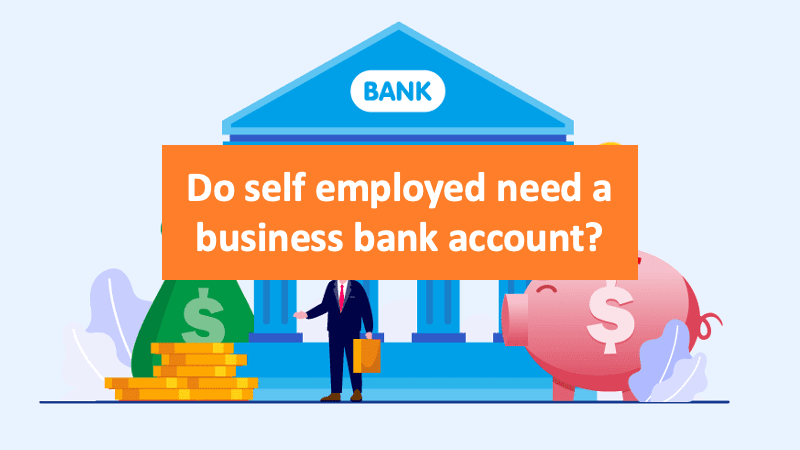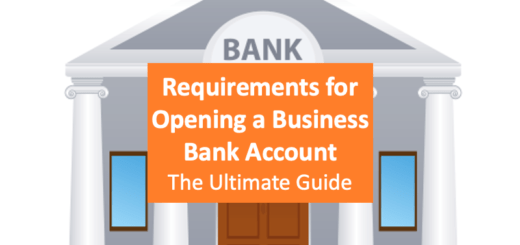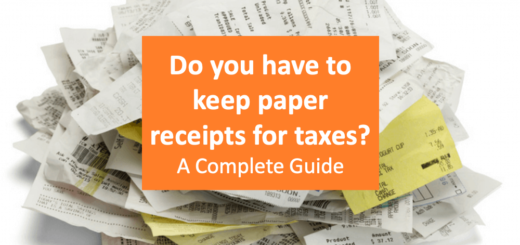Do Self-Employed Need a Business Bank Account?
Table of Contents
Read this article if you’re wondering if self-employed need a business bank account.

If you’re self-employed, you may be wondering whether you need a business bank account, if you can open one, or if you can run your business without having a dedicated business bank account. In this blog post, we’ll address these common questions and shed light on the importance of business bank accounts for self-employed individuals.
Do Self-Employed Individuals Need a Business Bank Account?
While it’s not legally required for self-employed individuals to have a separate business bank account, it is highly recommended.
Having a dedicated business bank account can offer several benefits, including:
- Professionalism
Having a separate business bank account helps establish a clear distinction between your personal and business finances. It gives your business a more professional image and can help you build credibility with clients, customers, and vendors. - Financial Organization
Keeping your business income and expenses separate from your personal finances can make it easier to track your business finances, calculate your business taxes, and manage your cash flow. It simplifies bookkeeping and helps you stay organized, which is crucial for the financial success of your business. - Legal Protection
Separating your business finances from your personal finances can provide a layer of legal protection. It can help protect your personal assets in case of legal issues or lawsuits related to your business.
Can Self-Employed Individuals Open a Business Bank Account?
Yes, self-employed individuals can open a business bank account. Most banks offer business bank accounts specifically designed for self-employed individuals, freelancers, and sole proprietors.
You will typically need to provide documentation such as your social security number or tax identification number (TIN), business name or “Doing Business As” (DBA) name, and proof of business ownership, such as a business license or a tax registration certificate. Requirements may vary depending on the bank, so it’s best to check with the bank of your choice for their specific documentation requirements.
Can You Run a Business Without a Business Bank Account?
Technically, you can run a business without a business bank account, but it is not recommended. Mixing personal and business finances can quickly become complicated and make it challenging to track your business income and expenses accurately. It can also create confusion during tax season and may not provide the legal protection you need for your personal assets.
Running a business without a separate business bank account can also make it difficult to accept payments from clients or customers, as many prefer to pay businesses through a business bank account rather than a personal account.
Can Self-Employed Individuals Use a Personal Bank Account?
While it’s not recommended, self-employed individuals can technically use their personal bank account for business transactions. However, it’s important to keep detailed records and separate your personal and business transactions diligently to avoid confusion and potential legal and financial issues.
Mixing personal and business finances can also complicate your bookkeeping and tax reporting, as you’ll need to separate personal and business expenses manually. It’s highly recommended to have a dedicated business bank account to ensure proper financial management and organization.
However, there are some pros of using your personal bank account for business.
Pros of Using a Personal Bank Account for Business
- Simplicity and Convenience
Using a personal bank account for business transactions can be simple and convenient, especially if you are just starting out or have a small-scale business. You may already have a personal bank account set up, and using it for your business transactions may seem like an easy option to avoid the hassle of opening a separate business bank account. - Lower Fees
Personal bank accounts may have lower fees compared to business bank accounts, which can save you money, especially if you have limited transaction volumes or account balances. Business bank accounts often come with additional fees for business-related services and transactions, such as wire transfers, cash handling, or overdraft protection. - Flexibility
Using a personal bank account for business transactions may offer more flexibility in terms of how you manage your finances. You may have more control over your account, and there may be fewer restrictions or requirements compared to a business bank account.
Conclusion
In conclusion, while it’s not legally required for self-employed individuals to have a business bank account, it is highly recommended for the professional image, financial organization, legal protection, and ease of managing business finances. Most banks offer business bank accounts for self-employed individuals, and it’s essential to keep personal and business finances separate to avoid potential issues.
By opening a business bank account and keeping your personal and business finances separate, you can effectively manage your business finances, simplify your bookkeeping, and ensure the success and growth of your self-employed business.
Was this article helpful?
We are a team of writers and contributors with a passion for creating valuable content for small business owners, self-employed, entrepreneurs, and more.
Feel free to reach out to use as support@falconexpenses.com





